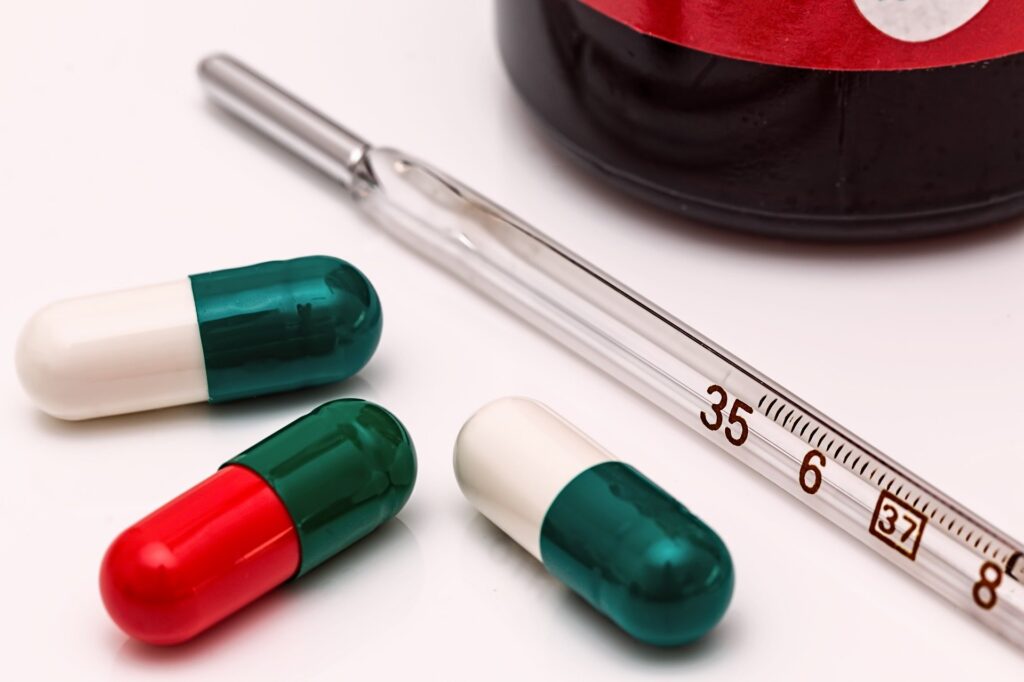Eli Lilly is set to begin a Phase III study to evaluate its JAK1/JAK2 inhibitor Olumiant (baricitinib) as a treatment for COVID-19. The drug has shown promising effects in rheumatoid arthritis (RA) patients in currently ongoing trials that the pharma giant is conducting in a partnership with the National Institute of Allergy and Infectious Diseases (NIAID).
The study for COVID-19 will be double-blind and placebo-controlled, with aims of enrolling close to 400 patients. The trial will assess the effects of baricitinib in patients with severe cases of the COVID-19 infection. It will therefore involve patients who are hospitalized, but that do not require invasive mechanical ventilation at the initiation of the study. Patients would also need to have at least one elevated marker of inflammation.
Related: COVID-19 Trial: I-Mab’s Drug to Treat Cytokine Release Syndrome Proves Promising
Cytokine Release
Hyper-inflammation resulting from the excessive production of inflammatory cytokines, referred to as cytokine release syndrome (CRS) or ‘cytokine storm,’ has been recognized as a severe complication of the respiratory infection caused by the novel SARS-CoV-2 coronavirus. Studies have shown that some of the cytokines that are released when the immune system goes into overdrive to fight the infection include IL-6, GM-CSF and interferon (IFN)-gamma. These cytokines are primarily produced by immune T cells, which have been shown to suffer from ‘immune exhaustion’ and become depleted in severely ill COVID-19 patients.
Cytokine storm may lead to the acute respiratory distress syndrome (ARDS) seen in severe cases of COVID-19. ARDS is a life-threatening condition in which the lungs become highly inflamed and fill with fluid, preventing them from providing enough oxygen to the body.
JAK1 and JAK2 are involved in mediating cytokine signals within immune cells and are specifically involved in IFN-gamma cytokine signalling. JAK1 and JAK2 are members of the Janus Kinase (JAK) family of intracellular, non-receptor tyrosine kinases which mediate the transmission of cytokine-induced signals in the JAK-STAT (Signal Transducer and Activator of Transcriptional proteins) pathway. Cytokines strongly act on immune cells and thus JAK-STAT signaling is usually seen to be highly activated in the cells.
As a JAK1/JAK2 inhibitor, baricitinib may help reduce the cytokine storm associated with the most severe complications of COVID-19. Several other trials are currently underway to assess the effects of cytokine suppression and immunomodulatory therapies in severely ill COVID-19 patients, including a trial by I-Mab that is evaluating the use of a GM-CSF inhibitor, as well as trials evaluating IL-6 receptor inhibitors such as tocilizumab.
In addition to reducing cytokine storm, baricitinib may also play a role in inhibiting host cell proteins that aid in viral reproduction, thereby blocking the ability of infected cells to make more copies of the virus.
Clinical Study
Eli Lilly believes that “studying baricitinib in controlled trials is important in order to better characterize its potential benefits and understand the safety of its use as a COVID-19 treatment.”
The primary endpoint for Lilly’s COVID-19 baricitinib study is the proportion of patients who die or require non-invasive ventilation/high-flow oxygen or invasive mechanical ventilation following 28 days of daily treatment with 4 mg of baricitinib. Key secondary outcomes of the study include the proportion of patients with clinical improvement at different time points, time to recovery, duration of hospitalization, number of ventilator-free days and mortality over a 28-day period, according to Eli Lilly’s press statement that included the study details.
Patrik Jonsson, president of Lilly Bio-Medicines, said in a company press release that the Phase III study in this indication is an important step in the company’s understanding of baricitinib as a potential COVID-19 treatment. He said Lilly is committed to fighting the global pandemic, which includes studying the efficacy of older or pre-existing medications against the disease.
As of June 15, 2020, there are over 7.8 million people across the world that have been infected by COVID-19, including more than 2 million in the United States.












Join or login to leave a comment
JOIN LOGIN